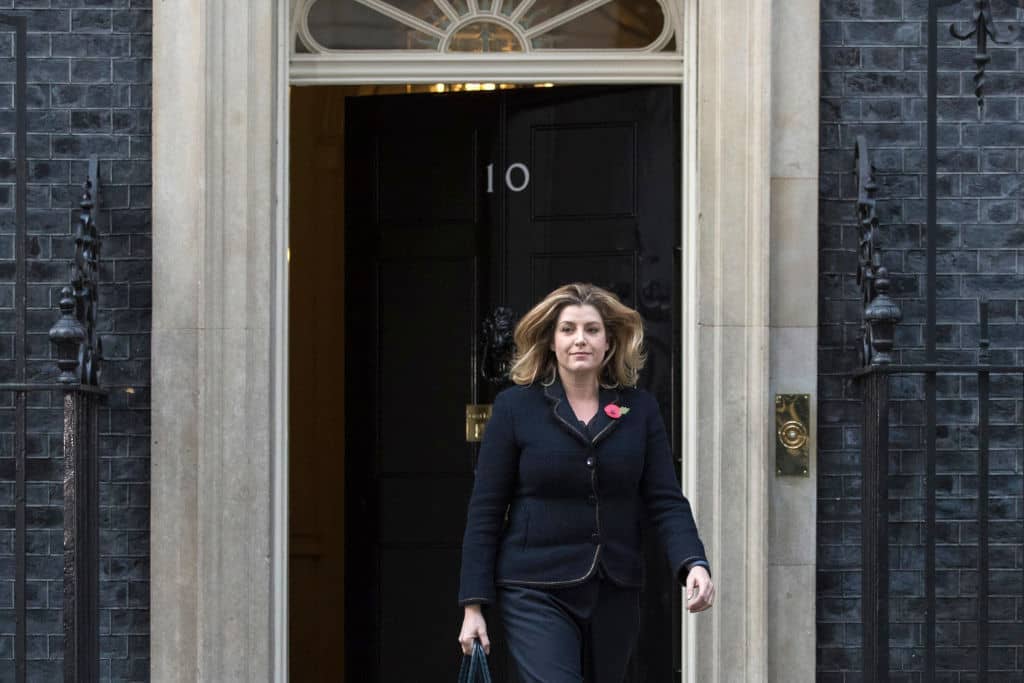Penny Mordaunt’s flip-flopping over gender self-ID makes it difficult to know where she stands. But on another issue she has made things abundantly clear: Mordaunt doesn’t understand how the internet works. If she makes it to the final round of the leadership contest this afternoon – and indeed to No. 10 – Mordaunt has vowed to make the likes of Facebook and Google pay when news content appears on their sites. This half-baked plan makes a fundamental misunderstanding. Mordaunt says:
‘We will create a news bargaining code, similar to the law that has been passed by the Australian government. This will mean that major online platforms like Google and Facebook will be required to reach a deal with news publishers to compensate them for their content being freely distributed across those services.’
By ‘freely distributed’, Mordaunt appears to be referring to links to news stories. But why should Facebook and Google cough up for this? Here’s a link to the article Mordaunt wrote in City AM setting out this proposal. Should The Spectator have to fork out for including it in this piece? Of course not – so why should Facebook? Nick Clegg and Mark Zuckerberg might be deeply unlikeable individuals but that doesn’t mean we should single out Facebook for special treatment.
The truth is that websites like Facebook and Google drive people to news sites, not the other way around. When a link to a news story appears on Facebook, if it’s interesting enough, people will click on it and arrive on a different website. Is Mordaunt really suggesting Facebook, rather than the newspaper, should pay for this privilege?
Mordaunt makes another rookie mistake here
In the short term, this policy looks like a win-win for news websites. But the truth is that by forcing Facebook to pay out every time someone clicks on a news link, it will backfire badly. A leaked memo reported by the Wall Street Journal yesterday reveals that Facebook is ‘reallocating resources from its Facebook News tab…as the company focuses more on the creator economy’. The paper also says:
‘Facebook’s shift away from its paid news product was influenced by the stepping up of regulation around the world aiming to require technology platforms such as Facebook to pay for news’.
When frontline politicians like Mordaunt come up with nonsensical plans like this one, it’s hard to blame Facebook and Zuckerberg for wanting to change tack.
Facebook is terrified by the rise of TikTok and its short viral videos designed to grab attention. TikTok’s success comes from two things: its content is made by people who intend to distribute it almost solely on TikTok; and its algorithm, which keeps people hooked by showing them more of what they like, and less of what they don’t.
As a result of this threat, Facebook is now playing catch-up. In the past, its strategy has been to buy out a competitor, as it did with Instagram (for $1 billion (£800m) in 2012) and WhatsApp (for $19bn (£11.4bn) in 2014). It’s too late to do that with TikTok, whose value dwarfs that of those companies. And even if Zuckerberg were to open his wallet, TikTok is owned by ByteDance, a Chinese multinational headquartered in Beijing. Such an acquisition would mean Zuckerberg makes himself even more unpopular that he already is in Washington DC and London with politicians worried about China.
So the choice for Facebook is to change the way it operates. As a result, it has given its news feed a radical shake-up in recent weeks. Viral videos – which keep people on Facebook and keep people scrolling – are now featuring more prominently than your auntie Doris’s post about her missing cat. It doesn’t take much to guess what is also appearing less: links to news articles that take people away from Facebook. Facebook is coming to realise – too late perhaps – that such links aren’t what many younger users want to see. Even those people who do want to see them can end up gravitating away from Facebook and ending up on another site.
So Mordaunt’s proposed scheme is not only backhanded, it comes far too late: her idea was designed for an internet that has changed. Worryingly, Mordaunt also shows she doesn’t understand how free markets work. She says:
‘Free markets only work if they are fair markets, and that’s why as Prime Minister I will bring forward the government’s proposed competition legislation which will empower the new Digital Markets Unit. This will help ensure fair dealing for smaller businesses that have to use services like Google, Amazon and Facebook to reach their customers.’
Mordaunt makes another rookie mistake here: none of these smaller businesses have to use Facebook or Google. They do so because they’re good for businesses. Many small – and indeed big – businesses advertise their wares on Facebook because they know it works. Others use Google because it helps customers find them. And businesses use Amazon because they want to use its distribution network, or to gain access to an enormous pool of customers. But Mordaunt seems to be suggesting these companies should be punished for their success. They shouldn’t.
Of course, all this would be bad enough on its own. But Mordaunt also wants to police the internet through the Online Safety Bill. She insists that, if in a position to bring this into law, she will get the balance right between free speech and cracking down on ‘harmful’ content. But why should we trust someone like Mordaunt when she has shown all too clearly that she doesn’t understand the internet?







Comments